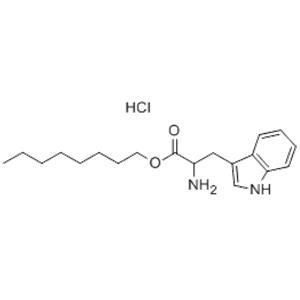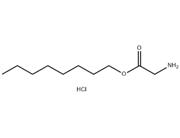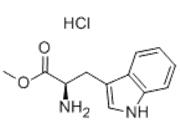Biological Research: DL-Tryptophan-N-octyl ester hydrochloride, with its unique chemical structure, can serve as an important reagent or tool in biological research. It can be utilized in studying protein-protein interactions, enzyme kinetics, and metabolic pathways, among others. By understanding how this compound interacts with biological systems, researchers can gain insights into fundamental biological processes. Pharmaceutical Industry: In the pharmaceutical sector, DL-Tryptophan-N-octyl ester hydrochloride may have medicinal applications. It could potentially be used as a synthetic precursor or intermediate in the production of drugs that target specific biological functions. Additionally, its interaction with certain receptors or enzymes could lead to therapeutic effects in treating certain diseases or conditions. However, further clinical studies and validations are required to confirm its therapeutic potential. Agrochemicals: DL-Tryptophan-N-octyl ester hydrochloride might also find applications in the field of agrochemicals. It could be used as a bioactive compound in pesticides or plant growth regulators, due to its potential to interact with biological targets in plants or pests. This could lead to more effective and environmentally friendly agricultural practices. Material Science: Given its chemical properties, DL-Tryptophan-N-octyl ester hydrochloride might also be explored in material science research. It could potentially be used as a building block in the synthesis of novel materials with unique properties or functionalities. | 

 China
China

